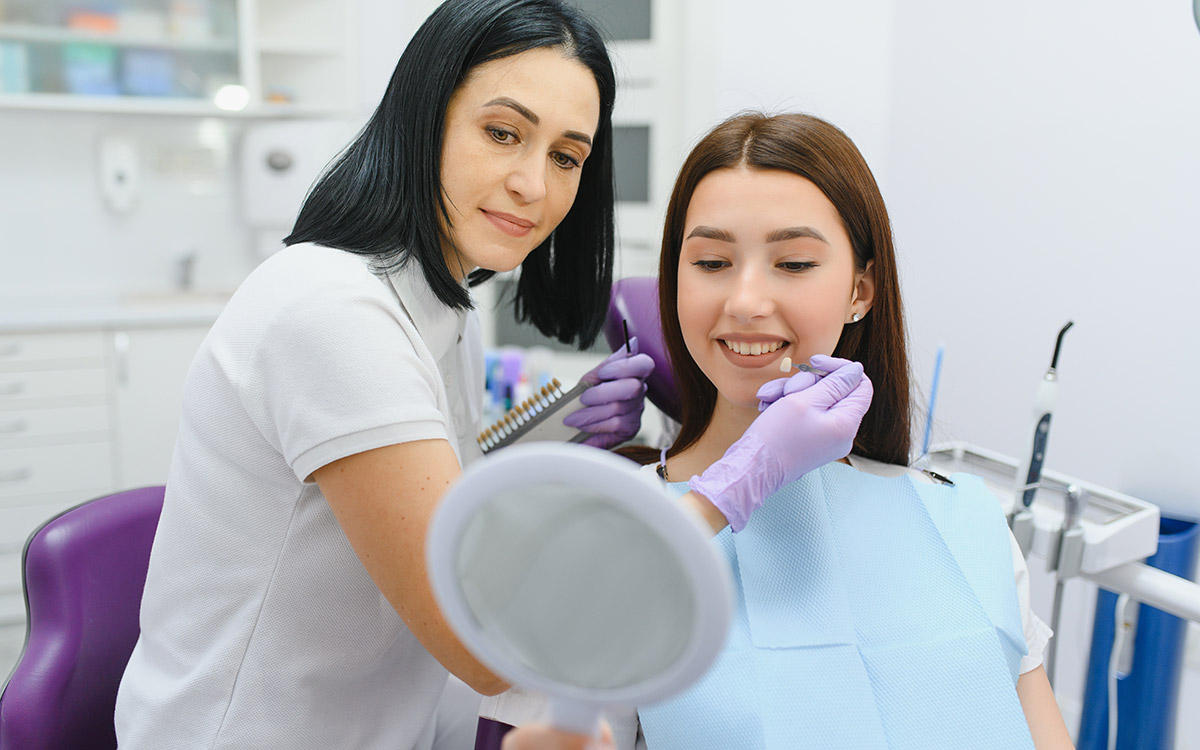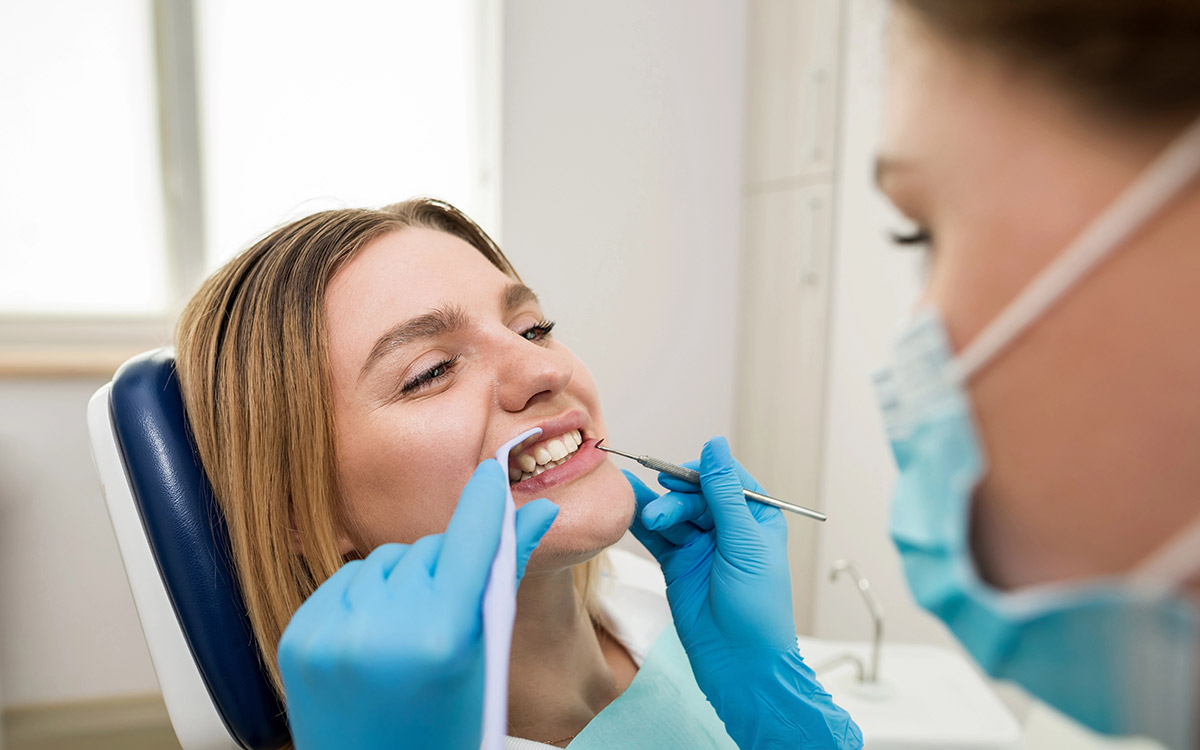Tooth decay is the destruction of the tooth structure. It is a process that affects both the enamel (outer coating of the tooth) and the dentin (inner layer of the tooth). Tooth decay is a result of cavities forming on the teeth.
It occurs when food with a lot of sugar content such as carbohydrates and starches leave the content on the teeth. When you eat food such as bread, candy, cake, and cereals, it will leave sugar on your teeth.
The bacteria in your mouth then break down the sugar into acids. The combination of bacteria, acids, food particles, and saliva form a substance known as ‘plaque.’ The plaque clings onto the teeth, and the acid within it starts to dissolve the enamel. The more the plaque stays on the teeth, the more severe the dissolving.
This process creates holes in the teeth, and these are ‘cavities.’ Over time, this will lead to the complete destruction of the tooth structure. Luckily, you can prevent all of this with a few activities. Keep reading to learn about the things you can do to prevent tooth decay.
1- Brush your teeth.
Always brush your teeth twice a day. Use toothpaste with fluoride. Fluoride is a component that the enamel of your teeth requires to remain strong. Brush in small circular movements on all sides. You can use a regular toothbrush or electric toothbrush, depending on your choice. Apply gentle pressure as you brush. And because fluoride is water-soluble, do not rinse and instead let it stay on the tooth surface. Ensure that you brush once before bed.
2- Floss daily.
Brushing is not enough; you need to floss too. Flossing helps to remove the debris caught between your teeth, those that toothbrushes cannot reach. When flossing, you need to be active and alert. First, ensure that you do not dig into the gum as this will cause bleeding. Secondly, be gentle with your tooth. You could still do a lot of damage with dental floss. Dentists recommend using floss that has fluoride. It will protect your enamel.
3- Use mouthwash.
And just for good measure, you should finish up your oral cleaning routine with a mouthful of mouthwash. Mouthwash will give your teeth added protection. Mouthwash kills the bacteria that causes plaque to form on the teeth. After you brush and floss, swish some mouthwash in your mouth, coating all of the surfaces. If you can find mouthwash with fluoride, the better. Additionally, you can use mouthwash after eating sugary foods, especially if you cannot brush your teeth right away.
4- Avoid sugary foods.
Sugary foods will deposit sugar onto the surface of the teeth, starting the tooth decay process. Avoid carbohydrates such as bagels, buns, and bread. Additionally, avoid drinking soft drinks with high sugar content, energy drinks, eating candy, chocolate, and ice cream. The high sugar content is not suitable for your teeth. If you cannot avoid sugary foods, ensure that you brush after eating them. If you are not able to brush, then use a mouthwash to clear the sugar from your teeth.
5- Maintain a healthy diet.
When it comes to your meals, you should maintain a healthy and balanced diet. Focus on food that will help to boost immunity, to prevent the development of bacteria. This means adding more fruits and vegetables to boost vitamins and minerals in the body. Additionally, incorporate foods that will improve the strength and overall health of your teeth. For example, some foods and beverages such as cheese, milk, and fresh fruits help to strengthen the teeth.
6- Drink tap water.
As mentioned above, fluoride is water-soluble. Therefore, some counties put fluoride in the local water supply to help strengthen the enamel. If this is the case, you should consider drinking more tap water. Drinking about half a liter a day should help with the strength of your teeth. This means that you switch out your disposable drinking water bottles for a durable, reusable water bottle. This ensures that you stay hydrated with fluoride-filled water that is good for your teeth.
7- Go for regular dental checkups.
Regular dental checkups are a great way to prevent tooth decay. Dental exams help to notice any weak points that could cause you problems in the future. When your dentist examines your teeth, they can also offer you recommendations to keep your teeth in optimum health. Additionally, the doctor may recommend vertical products to help you on your journey to a better smile. Finally, you could get tips for better brushing and flossing. Ensure that you visit your dentist every six months.
8- Get tooth sealants.
Sealants are a protective coating that is applied to the biting surfaces of the molars (back teeth). This protective coat shields against bacteria and will lessen the chances of forming plaque on the teeth. Sealants are pretty common for children when they grow their permanent teeth. This is because they are more likely to eat candies and sugary foods. However, you are never too old to get sealants, especially if you have a sweet tooth. Just be sure to consult with your dentist first.
9- Chew regularly.
Finally, you must exercise your gums and teeth to keep them healthy. Chewing sugarless gum or healthy hard foods such as carrots is a great way to stimulate your teeth and gums. Chewing will first increase saliva production, which will protect against any acids that erode your teeth. Additionally, chewing will increase blood flow to the gums to prevent bacterial infection better. Finally, chewing will strengthen your teeth, making them less susceptible to damage.
Remember that tooth decay will always lead to tooth loss. Therefore, caring for your teeth is an important role you need to play actively. To ensure your teeth do not succumb to decay, look out for warning signs such as discoloration on the surface of the teeth. Additionally, bleeding gums may be a sign that you need a dental checkup. Finally, remember to always go to a qualified dentist for all your checkups. Make them regular and never miss an appointment.







